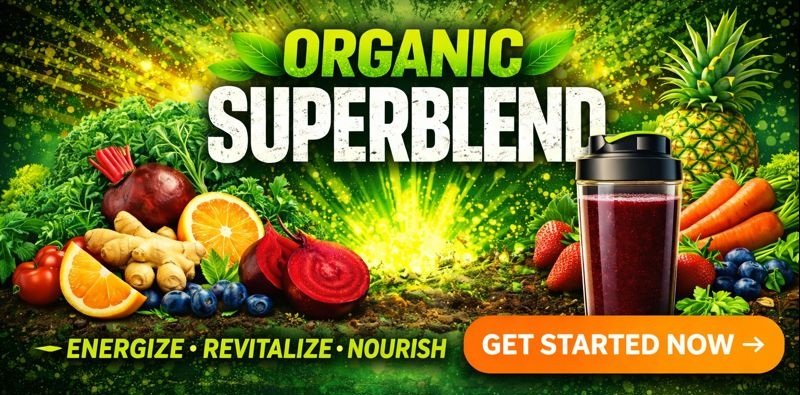Are Superfood Powders Worth It? Pros and Cons
Superfood powders have become increasingly popular, promising to deliver concentrated nutrients in a convenient form. From greens blends to berry extracts, these powders claim to boost energy, support digestion, and improve overall health.
But are superfood powders really worth it, or are they just hype? In this article, we’ll explore the pros and cons so you can make an informed decision for your health and budget.
What Are Superfood Powders?
Superfood powders are dried and ground concentrates of nutrient-rich foods. Common ingredients include:
- Leafy greens (spirulina, chlorella, wheatgrass)
- Berries (acai, blueberry, goji)
- Roots (turmeric, maca, ginger)
- Seeds and grasses (flaxseed, barley grass)
They are typically mixed into water, smoothies, or recipes to provide an easy nutrient boost.
Pros of Superfood Powders
1. Convenience
One of the biggest benefits is simplicity. Superfood powders make it easy to get a variety of nutrients without washing, chopping, or cooking.
2. Nutrient Density
Because they’re concentrated, a small serving can provide vitamins, minerals, antioxidants, and phytonutrients.
3. Long Shelf Life
Powders typically last months without refrigeration, making them a practical option for busy lifestyles or travel.
4. Easy to Customize
You can adjust serving sizes and mix different powders to suit your needs, whether you want more greens or extra antioxidants.
Cons of Superfood Powders
1. Cost
High-quality powders can be expensive, especially if you use them daily.
2. Processing
Drying and grinding can degrade some heat-sensitive nutrients. Not all powders retain the same benefits as fresh food.
3. Taste and Texture
Some blends have a grassy or earthy flavor that may not appeal to everyone.
4. Quality Variability
Brands differ widely in sourcing and manufacturing practices. Some products may contain fillers or lack third-party testing.
Are Superfood Powders a Replacement for Whole Foods?
No, superfood powders should be viewed as supplements—not substitutes. Whole foods provide:
- Natural fiber for digestion and satiety
- Better nutrient synergy in their original form
- More satisfying flavors and textures
Powders can complement your diet but shouldn’t replace a foundation of fruits, vegetables, whole grains, and proteins.
How to Choose a High-Quality Superfood Powder
If you decide to try a superfood powder, look for these features:
- Organic, non-GMO ingredients
- No added sugars, artificial flavors, or fillers
- Transparent labeling and sourcing
- Third-party testing for quality and purity
Tips for Using Superfood Powders
- Start with half a serving to see how your body responds.
- Blend into smoothies with fruits and healthy fats for better taste and absorption.
- Rotate different powders to avoid over-reliance on a single product.
- Store in a cool, dry place to preserve freshness.
Frequently Asked Questions
Are superfood powders safe?
Most are safe when used as directed, but consult your healthcare provider if you have health conditions or take medication.
Do superfood powders really work?
Many users report more energy and better digestion. However, results vary based on product quality and overall diet.
Can kids use superfood powders?
Some powders are safe for children, but always check the label and consult a pediatrician before use.
Final Thoughts
Superfood powders can be a convenient way to boost your nutrition—if you choose a high-quality product and use it to supplement, not replace, whole foods.
Considering superfood powders? Start by identifying your goals and select a reputable brand to see if they fit your lifestyle and wellness routine.
Tags:
superfood powders, nutrition, supplements, wellness, healthy living, antioxidants, greens powder, diet tips, natural health, smoothie recipes
